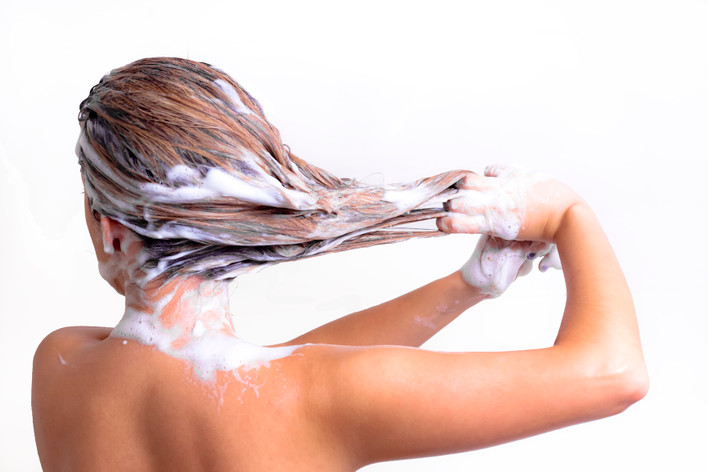CANCER CAUSING SHAMPOO - WHAT HAIRDRESSERS AND CONSUMERS NEED TO KNOW
Feb 1st 2019
February 4, 2019 is World Cancer Day, an international day that “empowers all of us across the world to show support, raise our collective voice, take personal action and press our governments to do more. World Cancer Day is the only day on the global health calendar where we can all unite and rally under the one banner of cancer in a positive and inspiring way.”
"Take personal action” is bolded to remind everyone that even with the hair care products we choose, we can take personal action to prevent cancer in our own lives and the lives of people we love.
This blog addresses an ingredient found by the Center for Environmental Health (CEH) in many hair care brands claimed to be cancer-causing: DEA, and what hair care professionals and consumers should know about it.
What products have DEA? What should I be avoiding?
The CEH study lists out 98 brands found to include DEA among their ingredient lists. CLICK HERE TO SEE THE FULL LIST
The list includes popular brands, such as Morrocanoil, American Crew, and Paul Mitchell, as well as brands you’d think you should be able to trust to create safe products, such as Trader Joe’s and Organix.
What is DEA?
Cocamide diethanolamine (cocamide DEA) is used as a foam booster or to increase the viscosity in cosmetic products.
DEA is found in many popular brands, so it’s in both a stylist and consumer’s best interest to understand what its potential effects are.
Does DEA cause cancer?
The short answer is yes.
Cocamide DEA is listed by the state of California as a cancer-causing substance. In order to get on California’s list, an ingredient such as DEA must incorporate chemicals identified by the World Health Organization (WHO), an international organization across 194 national states, as cancer-causing in humans or lab animals.
Woah! That’s pretty intense. As I said though, the short answer is that cocamide DEA has in fact been found by credible sources in the medical community to cause cancer, and it is found in a large number of cosmetic products.
“But wait! I’ve read studies that say small amounts of DEA in cosmetics product have proven harmless.” … Keep reading.
Should I avoid DEA?
There are some studies that question the validity of the claim that cocamide DEA causes cancer. In fact, many list the ingredient as harmless… as long as it stays below a certain percentage of the total formula.
However, the World Health Organization and the state of California list DEA as containing cancer-causing ingredients. If one side or the other has to be right on this argument, why risk it being the WHO and California?
Those are two very credible organizations, and if they are right, then you don’t want to spend every day in contact with a cancer-causing shampoo.
Additionally, while only seldom reported, there is conclusive evidence presented by the Department of Dermatology at University Hospitals KU Leuven in 2016, that cocamide DEA skin allergies exist in some people, as well.
What hair care products are safe? What should I be using?
Well of course I am biased here, but I think you should use Cote Hair products. While many of the haircare products containing cocamide DEA were formulated prior to the studies that show cancer hazards and allergic reactions, Cote Hair products are made with new and modern formulas that are free from questionable ingredients like DEA.
Additionally, Cote Hair products are vegan, cruelty-free, GMO-free, gluten-free, sulfate-free, and paraben-free, so you can rest assured the products are safe.
Whatever products you use for your hair and body, be vigilant and read ingredient labels. Don’t fall into the “if I can’t pronounce it, it’s dangerous” trap though.
As an example, if you look through the Cote Hair Hybrid Shampoo ingredients, you’ll come across SODIUM LAURYL SULFOACETATE. Okay… sodium. I’m good. Lauryl, I can at least pronounce. Sulfoacetate… huh?!
All sodium lauryl sulfoacetate is though, is an organic salt, and is completely harmless in terms of toxicity.
Concluding thoughts
Hair care companies aren’t out there to deliberately cause you harm. It’s just that some make products that have questionable ingredients which you may be better off avoiding.
In the spirit of what World Cancer Day is about, take it upon yourself to read and learn about ingredients that may be causing you or others harm.
If nothing else, at least check out the list of cosmetic products containing cocamide DEA, and maybe give our Cote Hair products a shot knowing that we’ve done everything we can to provide you products that perform as well as the best on the market, and products that are also safe for you to use!

